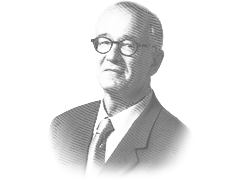The Future of the Social Sciences
The Center for the Study of Economy and Society at Cornell University was delighted to host a workshop on October 3rd, 2014 on the “Future of the Social Sciences” at the Cornell Club New York City. The format of the workshop was centered around discussion panels on 4 core themes and short background papers. The selected panels were structured around the following research areas: 1) Big Questions for the Social Sciences in the 21st Century, 2) Changes in Research Designs, 3) Blurring of Disciplinary Boundaries, and 4) Innovation, Change and Emergence.
The guest list for the Future of the Social Sciences workshop included the following scholars: Steven Strogatz, Francesca Trivellato, John Padget, Victor Nee, Barnaby Marsh, Duncan Watts, Russell Hardin, Sonja Opper, Siegwart Lindenberg, Delia Baldassarri, and Peyton Young.
The Future of the Social Sciences Videos
Future of the Social Sciences: Introduction
Victor Nee, Cornell University
Barnaby Marsh, John Templeton Foundation
Future of the Social Sciences: Part 2
Russell Harding, New York University
Future of the Social Sciences: Part 3
Duncan Watts, Microsoft Research
Future of the Social Sciences: Part 4
Delia Baldassarri, New York University
Future of the Social Sciences: Part 5
Peyton Young, Oxford University
Future of the Social Sciences: Part 6
Steven Strogratz, Cornell University
Future of the Social Sciences: Part 7
Siegwart Lindenberg, University of Groningen
Future of the Social Sciences: Part 8
Sonja Opper, Lund University
Future of the Social Sciences: Part 9
Francesca Trivellato, Yale University
Future of the Social Sciences: Part 10
Victor Nee, Cornell University
Future of the Social Sciences: Part 11
John Padget, University of Chicago
Future of the Social Sciences: Conclusion
Victor Nee, Cornell University
Barnaby Marsh, John Templeton Foundation

